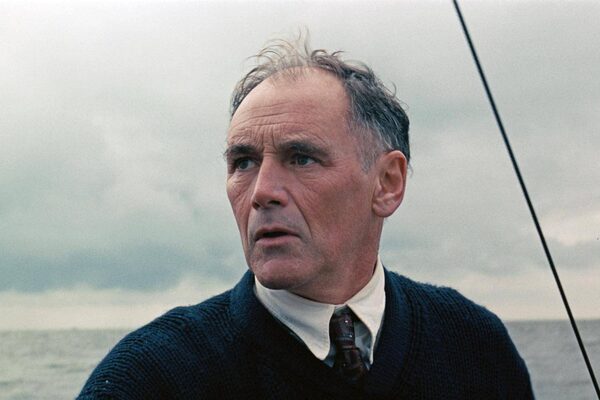How Mark Rylance Got Into Acting
Mark Rylance, known for his mesmerizing performances in Bridge of Spies, Dunkirk, and as a three-time Tony Award winner, has earned a reputation as one of the most accomplished actors of his generation. His journey into acting is as fascinating as his work, marked by early passion, classical training, and a deep respect for the art of storytelling.
A Childhood of Exploration
David Mark Rylance Waters was born on January 18, 1960, in Ashford, Kent, England. His parents, both English teachers, emigrated to the United States when he was two years old. Growing up in Wisconsin, Rylance was surrounded by literature and drama, which laid the foundation for his love of acting.
“My parents were teachers, so books and stories were always a big part of my life,” Rylance shared in an interview. “I think that exposure to storytelling ignited something in me.”
His first introduction to acting came through school plays, where he discovered the joy of performance. “I was a shy child, but being on stage gave me a sense of freedom,” he said. “It was a way to express myself without fear.”
The Influence of Shakespeare
Rylance’s interest in Shakespeare began in high school when he performed in a production of Hamlet. This experience had a profound impact on him. “Shakespeare opened up a world of possibilities for me,” he said. “The language, the characters, the humanity—it was like discovering a whole new universe.”
After graduating, Rylance returned to England to study at the Royal Academy of Dramatic Art (RADA), one of the most prestigious acting schools in the world. Reflecting on this period, he said, “RADA was both exhilarating and humbling. It taught me discipline and the importance of fully immersing yourself in the work.”
Breaking Into the Theater World
Rylance’s talent quickly caught the attention of directors in London’s theater scene. His first professional role was in a 1980 production of The Tempest, where he played Ferdinand. From there, his career blossomed on stage.
In 1989, Rylance became the first artistic director of Shakespeare’s Globe Theatre in London, a role he held until 2005. His work at the Globe solidified his reputation as one of the greatest interpreters of Shakespeare in modern times. “The Globe was a dream come true,” he said. “It was a place where I could explore Shakespeare’s work in its purest form.”
Transitioning to Film and Television
Although primarily known for his stage work, Rylance transitioned to film and television in the late 1980s. However, it wasn’t until his role as Rudolf Abel in Bridge of Spies (2015) that he gained widespread recognition in Hollywood. His understated yet powerful performance earned him an Academy Award for Best Supporting Actor.
“Bridge of Spies was a special project for me,” Rylance said. “Working with Steven Spielberg was like going to the best acting school in the world. He has an incredible way of bringing out the best in everyone.”
The Philosophy Behind His Craft
Rylance’s approach to acting is deeply philosophical. He views acting as a form of service—both to the story and to the audience. “Acting is about truth,” he explained. “It’s about finding the humanity in every character, no matter who they are or what they’ve done.”
He also emphasizes the importance of collaboration. “Theater and film are collective art forms,” he said. “You’re part of a team, and the magic happens when everyone comes together to tell the story.”
Advice for Aspiring Actors
For those looking to follow in his footsteps, Rylance advises patience and persistence. “Acting is not an easy path,” he said. “It takes time to find your voice and your place in the industry. But if you love it, keep going.”
He also stresses the importance of humility. “Never stop learning,” he said. “Every role, every project, every rehearsal is an opportunity to grow.”
A Legacy of Excellence
From his early days as a Shakespearean actor to his celebrated roles in film, Mark Rylance’s career is a testament to the power of passion and dedication. Whether on stage or screen, he continues to inspire audiences with his depth, nuance, and authenticity.
“Acting has been a journey of discovery for me,” Rylance said. “It’s a privilege to tell stories that resonate with people. That’s what keeps me going.”




